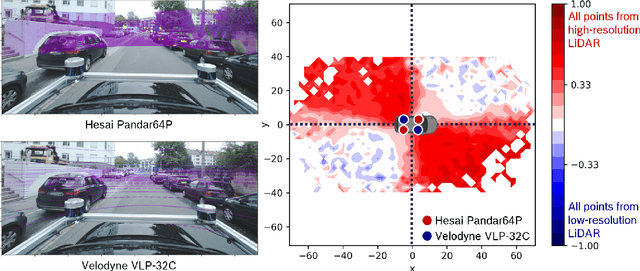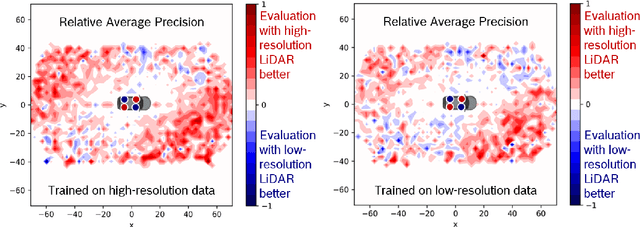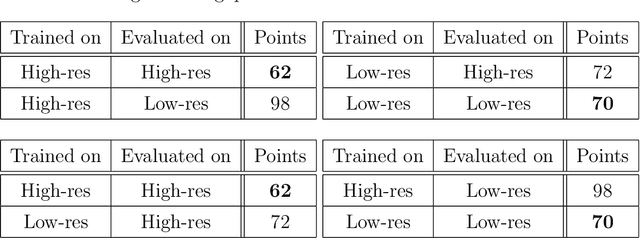Understanding the Domain Gap in LiDAR Object Detection Networks
Paper and Code
Apr 21, 2022



In order to make autonomous driving a reality, artificial neural networks have to work reliably in the open-world. However, the open-world is vast and continuously changing, so it is not technically feasible to collect and annotate training datasets which accurately represent this domain. Therefore, there are always domain gaps between training datasets and the open-world which must be understood. In this work, we investigate the domain gaps between high-resolution and low-resolution LiDAR sensors in object detection networks. Using a unique dataset, which enables us to study sensor resolution domain gaps independent of other effects, we show two distinct domain gaps - an inference domain gap and a training domain gap. The inference domain gap is characterised by a strong dependence on the number of LiDAR points per object, while the training gap shows no such dependence. These fndings show that different approaches are required to close these inference and training domain gaps.
 Add to Chrome
Add to Chrome Add to Firefox
Add to Firefox Add to Edge
Add to Edge